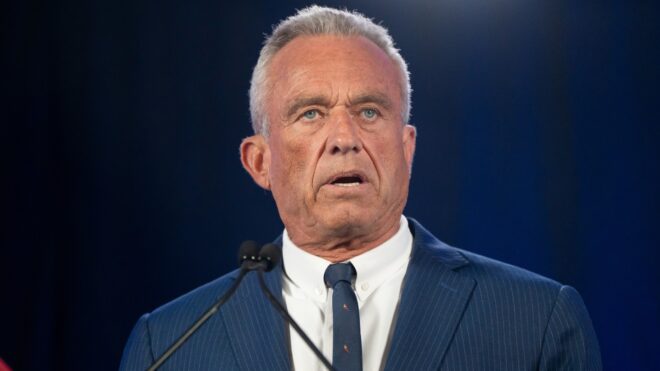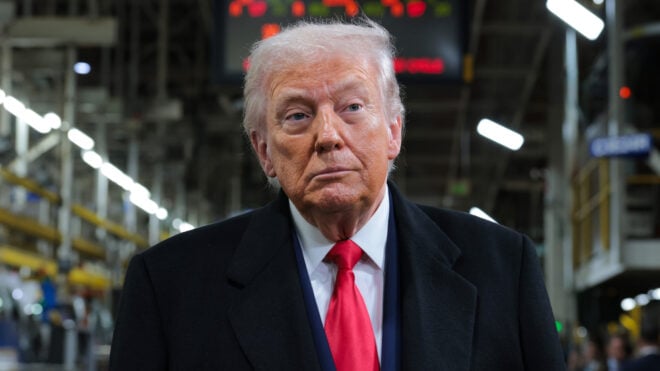Princess Diana was tragically killed in a car accident on August 31, 1997. She was just 36 years old. An entire generation or two mourned the loss of the woman affectionately known as "The People's Princess," while another, younger generation watched the ongoing televised coverage while wondering what made this woman so special. Recently, one person visited Reddit to ask why Princess Diana's death was such a big deal, and they received responses that are so incredible they truly deserve to be shared.
The person explains that they were really young at the time of her death, and it just didn't translate:
“I was a kid at the time and never really understood the impact or severity of the incident. Why was it such a huge deal other than the obvious fact of her being part of the royal family.”
Instead of harping on this younger person for having no clue, several people took time to be thoughtful, generous, and even straight-up historical with their responses. Let’s dive in and learn something!
Diana was the first celebrity royal.
"Princess Diana was the first member of the royal family (in its loosest possible term, as she wasn't technically a royal after the divorce) to exist in the celebrity sphere that we'd now recognise. The courtship and the marriage were a huge media event, she was a fashion icon, and she made conscious use of the media as a tool during her divorce and the aftermath to construct an image (accurate or not, I won't weigh in) as the wronged party and the victim, a humanitarian crusader, and a friend of the stars. Even her funeral was broadcast live.
"[Former Prime Minister Tony] Blair wrote in his memoirs that Diana 'captured the essence of an era and held it in the palm of her hand. She defined it.'"
Her rise in popularity happened in the context of a whole British *moment.*
"To look at Diana as a cultural icon in the mid-90s, we also have to consider the cultural groundswell of 'Cool Britannia' – there was an enormous sense of energy and momentum about the way Britain presented itself to the world, from the youthful sincerity of new Prime Minister Tony Blair, to the swagger of Brit Pop, to Hugh Grant waffling through whatever it is his films were about, to the Spice Girls' ladette feminism. Princess Diana firmly fit into that pantheon and she occupied a key role."
She created the perfect cornucopia of interest.
"We've had princesses before, we've had bleeding hearts touring the world before, we've had high profile divorces before, but none of this had happened to an institution with the cache and fascination of the Royal Family."
The Brits were also talking about social class in a way that they hadn't before.
"Britain in the 90s was suddenly very class conscious. The traditional class lines had been eroded by, among other things, the decline of the organised labour movement after a series of confrontations in the previous decades, the 'new money' of the Yuppies, and the expansion of homeownership to council tenants. The antiauthoritarianism that had been underground in the 80s had also been co-opted by the mainstream, punk had effectively become Geri Halliwell's union jack dress as she pinched Prince Charles's bum."
And this national conversation even extended to the royal family.
"What this meant is that the traditional barriers of class were now much more fluid and that traditional deference to the monarchy, and indeed all institutions, had faded. The monarchy were increasingly being viewed in human terms, not as an embodiment of the nation, and Charles and Diana's marital discord was preceded by a series of scandals that had created a tabloid interest in the inner workings of the house of Windsor, including Prince Andrew's separation from Sarah Ferguson and the fire at Windsor Castle in 1992, the latter resulting in both the demystifying footage of priceless artefacts being ferried from this crumbling edifice and the unedifying conversation of who exactly would be paying for the restoration. The end result being that the Queen agreed to pay income tax and Buckingham Palace being opened to tourists."
Diana was a modernizer and a rebel.
"It's not quite the royal family being thrown into the street but the 1992 Windsor fire is a good example of reality intruding into the isolated, protected sphere of the monarchy and the limits of political and public indulgence. I'd argue that as much as the Prince Andrew/Sarah Ferguson divorce, it helps explain why Princess Diana was seen as being a moderniser and a rebel, and why she was able to solicit both so much empathy and so much hostility."
Sarah Ferguson didn't hurt.
"Sarah Ferguson was also an interesting precursor in that, although portrayed very differently in the press that mocked her crassness and entitlement, her story played out in front of the long lenses, creating a boom town for gossip that Diana inherited. It's no coincidence that Sue Townsend's satirical novel, The Queen and I, imagining a republican Britain forcing the royal family into a council estate, came out the same year as Fergie was papped having her toes sucked by her lover at the poolside."
Diana was also an outsider.
The context provided in just this first comment is extraordinary, but then others jumped in to flesh out these already incredible points.
"I think a full analysis of the public response to her death would need to go beyond the field of history and deep into the fields of sociology and psychology. From a historical perspective, though, I'd say that the most significant element was her place as an outsider in the Royal Family, and the way that public perception of the British monarchy had changed so dramatically over the 20th century."
Up until then, the monarchy was crucial to British identity.
"If we look back to the early part of the 20th century, the monarchy was a fundamental pillar of British identity. The notion of service to 'King and Country' was central to recruitment and morale during the First World War; at the outbreak of that war, and at the Armistice, huge crowds gathered outside Buckingham Palace to sing 'God Save the King'.
"Similar scenes were seen at the end of the Second World War, with the Palace (and the Royal Family) again being a focal point for celebrations. The popularity of the monarchy was cemented by that conflict, in no small part by the Royal Family's refusal to leave London during the Blitz. Hitler reputedly called Queen Elizabeth (mother of the present Queen) 'the most dangerous woman in Europe' because of her status as a much-loved figurehead."
"We can see this begin to dissipate as Britain moved into a post-Imperial future after the war, though. While street parties were held across the country for Queen Elizabeth II's Silver Jubilee in 1977, in the same year God Save the Queen by the Sex Pistols was released and hit #1 on the NME charts, a song intended to 'evoke sympathy for the English working class, and a general resentment towards the monarchy.'
"Towards the end of the 20th century, public support for the Royal Family began to slip sharply. Polls conducted by ICM Research for The Guardian newspaper in the early '90s showed that '70 percent of respondents felt the country would fare worse without the Royal Family'; this dipped to 48% in 1997, just before the death of Diana, and had fallen to 44% in 2000."
Media attention shifted to the younger royals, and it changed everything.
"So by the mid-90s the private lives of the younger royals were becoming rather a soap-opera in the press, and the former deference of the media towards royal privacy that was common in the earlier part of the century had largely evaporated. As the popularity of the monarchy amongst the public was on the wane, much public sympathy was extended to Diana (who had always been a fairly popular figure) as she was pushed to the outer fringes of royal life."
The press also pitted Diana againt the establishment, and people liked it.
"That's some of the historical context; as to why there was such an incredible public response to Diana's death, again I think that gets into the realm of mass psychology and sociology. I'd argue that the much-changed relationship between the media and the royals, and the corresponding presentation of Diana's life as a story that could be followed in the press, with her on one side and the increasingly-unpopular royal establishment on the other, was a very major factor."




